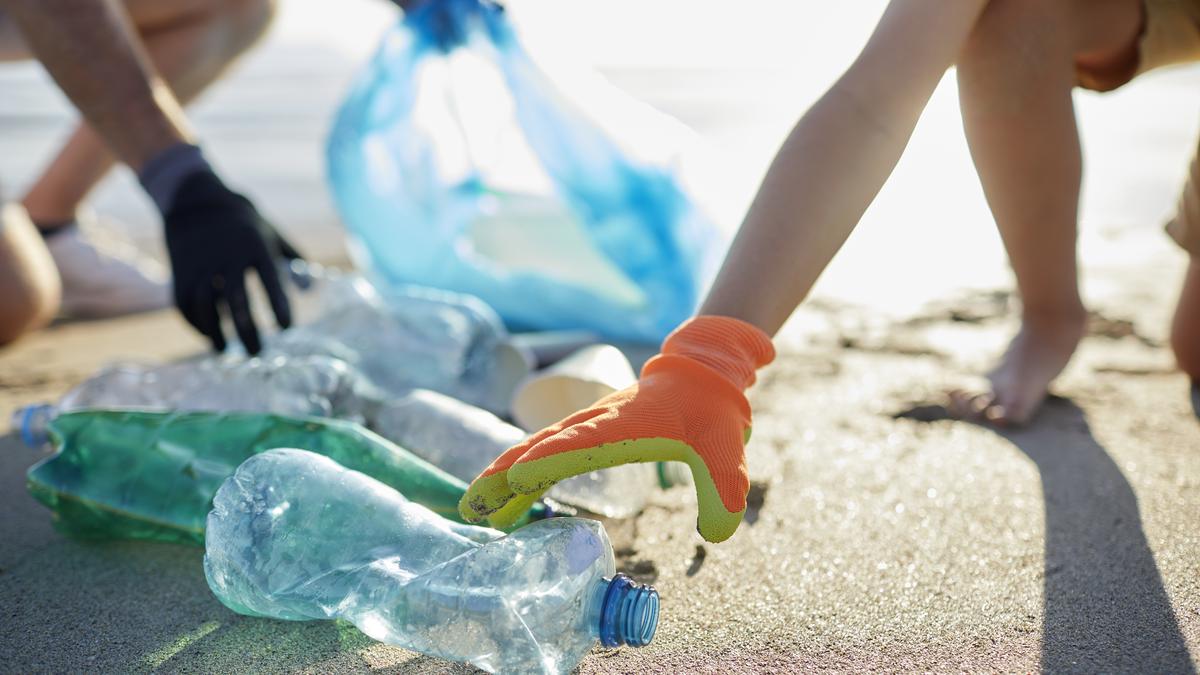
Replace plastic water bottles with water dispensers across all offices.
| Photo Credit: Getty Images
The e-commerce company delivered the item we had ordered in a large carton. There was another box inside and the item was wrapped in a plastic bag.
Today, we can order anything from groceries and phones to clothes and shoes, to be delivered at the doorstep. Life has come full circle from our childhood. The one thing that has changed is the packaging and the material that needs to be disposed or recycled.
When we were children, there was a line of hawkers bringing their wares to our doorstep. Steel utensils or cloth bags were used to collect the items, and there were no plastic bags.
Now we have e-commerce vendors delivering eggs, bread and even vegetables in packets. Kiosks in malls sell corn in paper cups with a plastic spoon. Any large social event sees generation of huge quantities of waste — water bottles, plastic cups and spoons, and wrappers. In offices, packaged bottled water is used, generating millions of waste plastic bottles.
Disposing of plastic and other packaging is a responsibility few of us carry out correctly. I have seen discarded mattresses, clothes and pictures on the street and garbage dumps. Sixty-two million tonnes of waste is created in India alone annually, of which only 70% is collected and an even smaller portion treated. We rely on landfills and waste-burning, creating serious environmental and health concerns.
Mother Earth is crying out for a viable solution. One could go on forever about bygone days. There was no paper or plastic packaging, and there was no problem of disposing the waste. While we have come a long way, and are a rapidly developing country, sometimes one feels nostalgic for the time when life was simpler and the environment less polluted.
While State and national bodies have been implementing various measures to tackle the waste problem, is there something that we can do, as conscious and concerned citizens?
Small actions
The following small actions come to mind:
Using less plastic, especially single-use plastic, by replacing plastic water bottles with water dispensers across all offices, educational institutions, shops and public places, and social events, and eschewing plastic cutlery (I used to carry my steel water-bottle, lunchbox and spoon to work with me for most of my working life. My colleagues often made fun of my bag as a ‘holdall’).
Minimising use of e-commerce and packaging, by choosing products with less packaging, buying fresh vegetables at farmers’ markets, and using cloth shopping bags.
Recycling and reusing clothes, furniture, and other articles. My mother has been making birds and dolls with old unusable clothes, gifting them to family and friends. I repurpose my saris into kurtas or donate them. Our old furniture, with a dab of fresh polish, has been reused at home or by my domestic help over the years. While a famous line tells us that by the time you go home with a new outfit, the fashion changes, we need not be the ones to adopt “fast fashion”. Studies have shown that global textile production is likely to triple by 2050, using scarce resources and choking landfills.
Transitioning into e-books and e-newspapers from paper tomes and newspapers; we need to reject the “I am a paper book kind of person!” dialogues.
Having a vermicompost pit at every multi-storey building and house, for disposing of wilted flowers and kitchen waste. Reducing food waste is essential, why not eat leftovers or give them to the help?
Segregating waste into dry and wet, to enable proper disposal by the waste managers
There may be more innovative and practical ways of reducing, reusing, and recycling things, which can reduce waste. Mahatma Gandhi’s words, “The future depends on what you do today,” remind us that our actions set the foundation for tomorrow and impact our future generations. If we do not want our future humans to be buried under mountains of garbage and struggle with health problems, we must do better now.
Published – May 04, 2025 03:12 am IST
